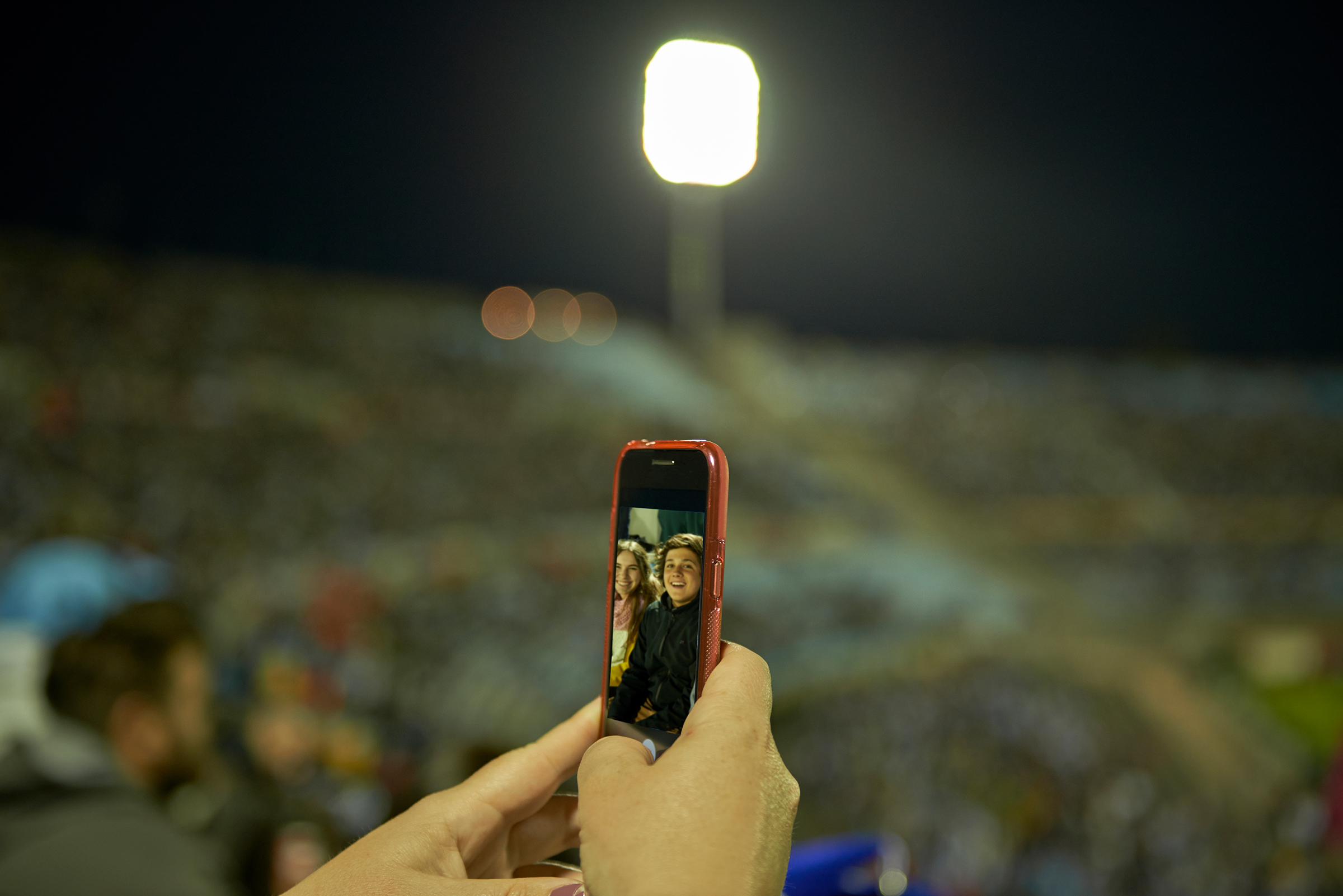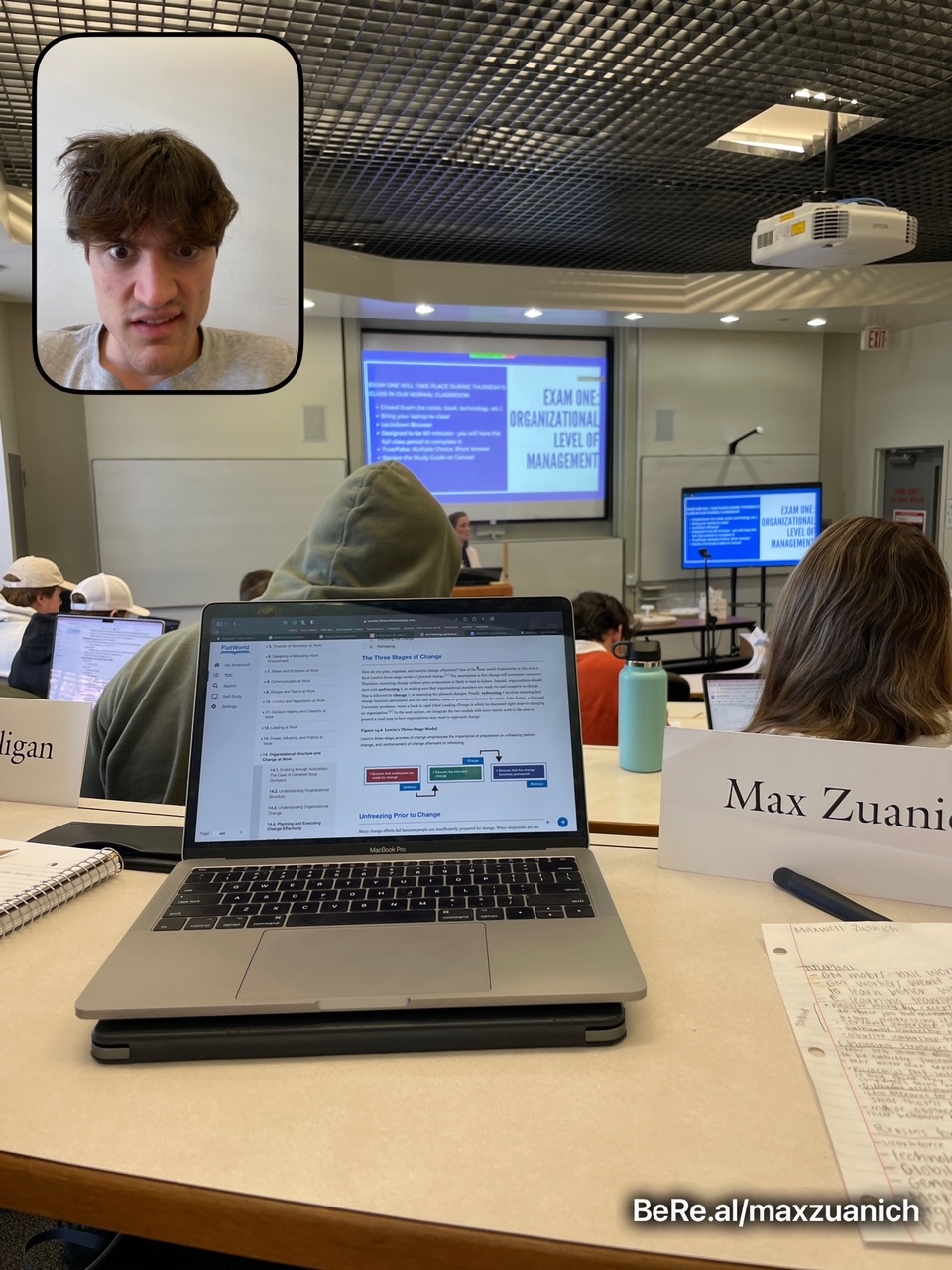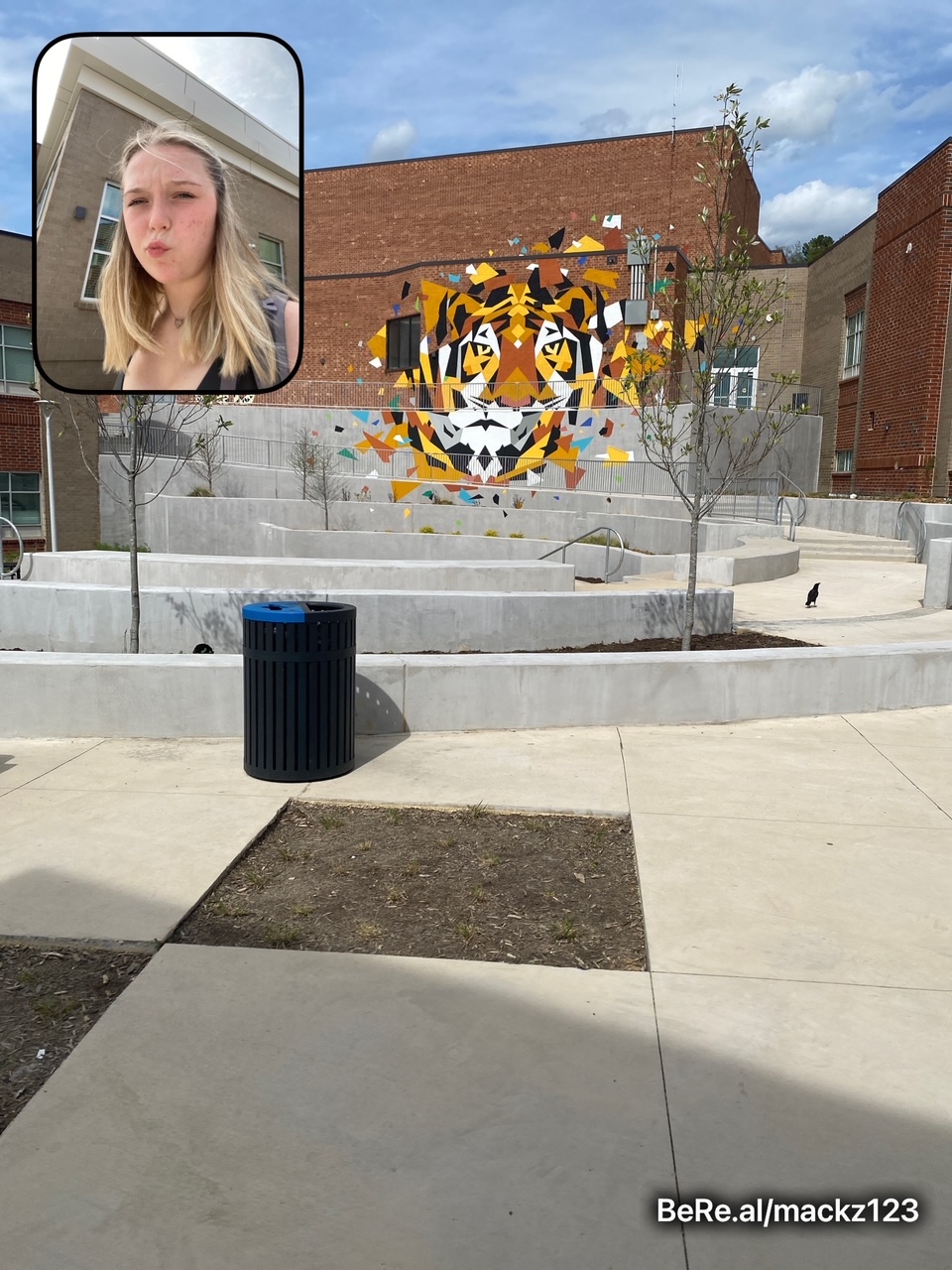
If you’ve ever wondered what your friends are up to in the middle of a random Tuesday afternoon, then you may want to make an account on BeReal. Known for its once-a-day photo policy, BeReal is an alternative social media site that seeks to give users a more unfiltered look at each other’s lives.
The app encourages users to post one, and only one, photo per day to show their followers what they’re actually doing in real time. By eliminating users’ ability to edit or add a filter to their photos, BeReal is supposed to offer a more authentic glimpse into people’s daily lives than sites where highly curated posts are the norm.
Founded in December 2019 by French entrepreneurs Alexis Barreyat and Kévin Perreau, the app originally gained popularity in Europe. But its appeal has since expanded more globally. A March report from app data platform data.ai showed that BeReal is currently ranked fourth in mobile app downloads in the U.S., the U.K., and France, following Instagram, Snapchat, and Pinterest. Its monthly active users have also increased by 315% since the beginning of 2022, according to Apptopia.
BeReal’s bid to boost more genuine and less-frequent posting seems to particularly resonate among younger generations, with data.ai reporting that Gen Zers and millennials make up a majority of the app’s user base. But privacy concerns remain over how the app gathers, and might someday use, the data it collects.
Here’s what to know about how BeReal works and why it’s gaining momentum.
How BeReal works
When you download BeReal, you’ll begin receiving daily notifications prompting you to share an unedited photo of yourself and your surroundings within a two-minute timeframe. The notification arrives at a different time each day, preventing users from planning activities around it. Once you receive the notification, the app asks you to take a picture with your phone’s front and back cameras simultaneously to provide a complete snapshot of what you’re doing in that moment—whether it’s hanging out with friends, working at your desk, or watching Netflix in bed.

The idea is to create a judgment-free environment where users get a realistic look at what their friends are up to on a daily basis, no matter how mundane or exciting their updates are. Mackenzie DePinto, an 18-year-old high school student in Chapel Hill, N.C., says BeReal feels more genuine than other social platforms: “It’s really spur-of-the-moment so you feel like you’re truly seeing what your friends are doing at a specific time.”
Maxwell Zuanich, a 19-year-old college student at Southern Methodist University (SMU) in Dallas, says that he first learned about BeReal when he was with a friend who received the daily notification and asked him to be in her photo. Since downloading the app in January, he says he has yet to miss a day of posting on it. “It’s the highlight of my day,” he says. “I love getting that notification.”
Every BeReal user gets the notification at the same time (depending on their time zone), resulting in a brief period when everyone is posting for the day. If you decide you don’t like your first post or miss the two-minute window, you have the option of retaking your photo or posting late. But other users will be alerted to both these facts once you share. You also can’t view your friends’ photos until you’ve posted your own, a feature that’s intended to keep users from “lurking” rather than engaging.
DePinto says that one of her favorite BeReal features is the ability to share reaction selfies to her friends’ posts rather than “liking” them. “It makes it much more personal,” she says. “The little photos of my friends responding are always so funny.”
However, some users have expressed concern over the idea that, like its more mainstream competitors, BeReal could accumulate enough personal data to create a detailed profile of their daily routines. The app’s terms of use state that it will not sell user data to third parties. But if that policy were to change, it could open the door to privacy issues ranging from targeted advertising to surveillance.
BeReal declined to comment on the platform’s privacy goals or how the app works.
What BeReal is aiming to do
With social media giants like Instagram and TikTok under increasing scrutiny for the ways their platforms negatively impact young people’s mental health, BeReal has been hailed as an antidote to the pressures of appearing “perfect” online. “BeReal won’t make you famous,” reads the app’s description, “if you want to become an influencer you can stay on TikTok and Instagram.”

Zuanich says that while he loves the creative side of social media, the amount of work he puts into posting often makes it feel like a job. “It takes the fun out of it, and you start to get burned out,” he says.
For Zuanich and others like him, BeReal has helped alleviate stress over presenting an idealized version of life online. Zuanich says that while he’s been trying to dial back his social media use, BeReal is often a good reminder of what’s toxic about other platforms. “You’ll be doing something cool and start thinking, ‘I hope I get the notification right now,'” he says. “But that just shows how you usually want to only post the highlights of your life. It keeps you in the moment.”
Users are also less likely to spend excessive amounts of time on BeReal when their friends can only post once a day. “I don’t check it constantly because it’s a one and done thing,” DePinto says.
Read more: Instagram Is Doing Grave Harm to Our Generation. We Need Help to Stop It.
How BeReal is expanding its reach
BeReal has been on a significant upward trajectory in 2022. Since it launched in late 2019, data.ai reports that the app has been downloaded 5 million times worldwide. But close to 65% of those downloads, around 3.2 million, took place this year alone.
BeReal has increased its presence on college campuses in recent months through a student ambassador program that leverages grassroots marketing—similar to how Facebook relied on word-of-mouth among college students in its early days. Zuanich says that he’s noticed a definite uptick in the number of students at SMU who have signed up for BeReal recently, noting that his friend count has more than tripled from 30 to 99 in the past month.
But even if more people he knows start downloading BeReal, Zuanich says that following too many people would defeat the point of the app. “The more people you add, the longer it takes to scroll through everyone’s posts every day,” he says. “It would become so time-consuming.”
More Must-Reads From TIME
- The 100 Most Influential People of 2024
- Coco Gauff Is Playing for Herself Now
- Scenes From Pro-Palestinian Encampments Across U.S. Universities
- 6 Compliments That Land Every Time
- If You're Dating Right Now , You're Brave: Column
- The AI That Could Heal a Divided Internet
- Fallout Is a Brilliant Model for the Future of Video Game Adaptations
- Want Weekly Recs on What to Watch, Read, and More? Sign Up for Worth Your Time
Write to Megan McCluskey at megan.mccluskey@time.com